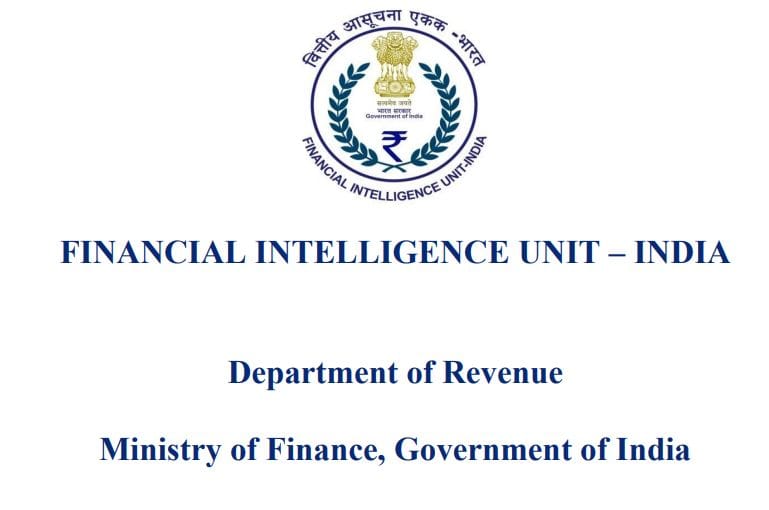JioCoin: The Future of Cryptocurrency in India
JioCoin: The Future of Cryptocurrency in India: In recent years, the cryptocurrency market has been growing rapidly across the globe. From Bitcoin to Ethereum, digital currencies are revolutionizing the way we think about finance and investment. One such cryptocurrency that has caught the attention of many is JioCoin. But what exactly is JioCoin, and how can it influence India’s digital economy? If you are a WordPress website owner or cryptocurrency enthusiast, this blog post will provide you with everything you need to know about JioCoin: The Future of Cryptocurrency in India.

What is JioCoin?
JioCoin is a proposed cryptocurrency by Reliance Jio, a subsidiary of Reliance Industries Ltd., one of India’s largest conglomerates. JioCoin is designed to work within India’s digital ecosystem, leveraging the growing interest in blockchain technology and digital currencies. While JioCoin is not yet fully launched, it has sparked significant interest due to Jio’s vast network and influence in the Indian market.
As we dive deeper into JioCoin, we will discuss its potential to reshape the perception of cryptocurrency in India and the role it may play in the future of digital payments.
JioCoin: The Future of Cryptocurrency in India is an exciting topic that every cryptocurrency enthusiast should explore. Many are eager to learn how JioCoin could fit into the larger cryptocurrency landscape in India.
JioCoin: The Future of Cryptocurrency in India Explained
In 2017, there were rumors and reports suggesting that JioCoin would be created as a way to facilitate digital payments and further strengthen Jio’s growing telecommunications platform. Though it has yet to be officially confirmed, the concept of JioCoin represents Reliance Jio’s vision of integrating cryptocurrency with digital and mobile payments in India.
How Does JioCoin Work?
Although details about JioCoin’s functionality are still scarce, there are some aspects of the cryptocurrency that have been speculated or outlined:
- Blockchain Technology: Like Bitcoin and Ethereum, JioCoin will likely operate on a decentralized blockchain. Blockchain ensures transparency and security by allowing transactions to be recorded on a distributed ledger that is tamper-resistant.
- Payment Integration: JioCoin could be used for seamless, fast, and secure payments, similar to how mobile wallets (e.g., Paytm or Google Pay) work in India. Jio’s massive customer base could make this digital currency ideal for daily transactions.
- Mobile and Digital Platforms: Since Jio already has millions of subscribers who use its mobile data and services, JioCoin may integrate with the Jio network, allowing users to pay for services or purchase goods and services directly through the app or website.
- Smart Contracts: It is expected that JioCoin will support smart contracts. These are self-executing contracts where the terms are written into lines of code, making transactions faster and reducing the need for intermediaries.

Why is JioCoin Important for India’s Future?
India, with its rapidly growing digital economy, is poised to be one of the key players in the world’s adoption of blockchain technology and cryptocurrencies. JioCoin, as a product of Reliance Jio, could play a pivotal role in the country’s future. Here’s why:
- Financial Inclusion: With over 1.3 billion people, a large portion of India’s population remains unbanked or underbanked. JioCoin could bridge this gap, enabling individuals in rural and remote areas to participate in the digital economy, make payments, and invest in cryptocurrency, all without requiring a traditional bank account.
- Faster and Cheaper Transactions: JioCoin could potentially reduce transaction fees and improve the efficiency of cross-border payments. By using blockchain technology, the cryptocurrency could bypass traditional financial institutions, leading to quicker, cheaper, and more secure transactions.
- Support for Innovation: JioCoin’s arrival could encourage more blockchain and crypto-related innovations in India, making the country a global hub for digital finance. This could attract investments and help India become a leader in fintech and digital payment solutions.
- Regulatory Push: While cryptocurrency adoption faces regulatory hurdles in India, JioCoin could potentially ease the government’s concerns. As Reliance Jio is a trusted brand, the government may be more inclined to regulate and support JioCoin’s development, leading to greater cryptocurrency acceptance.
JioCoin vs. Other Cryptocurrencies
You might be wondering, “How is JioCoin different from Bitcoin or Ethereum?” Here are some key differences:
- Centralization vs. Decentralization: Unlike decentralized cryptocurrencies like Bitcoin, which are governed by a global network of miners, JioCoin is expected to be more centralized, controlled by Reliance Jio and its parent company, Reliance Industries. This could influence how the cryptocurrency is regulated and used.
- Target Market: JioCoin is likely tailored to the Indian market, focusing on local use cases such as mobile payments, financial inclusion, and integration with Jio’s services. Bitcoin, on the other hand, is a global cryptocurrency used for a wide range of transactions and investments.
- Blockchain Focus: JioCoin is expected to be heavily integrated with the Jio ecosystem, including mobile apps, broadband, and other services, making it a more niche product compared to broader digital currencies like Ethereum, which support decentralized applications (dApps) and smart contracts across multiple platforms.
How JioCoin Could Impact Businesses in India
JioCoin’s introduction could have wide-ranging effects on businesses in India, especially in sectors like retail, e-commerce, and telecom. Here’s how businesses could benefit from adopting JioCoin:
Understanding JioCoin: The Future of Cryptocurrency in India is essential for anyone looking to navigate the evolving digital economy.
- Simplified Payment Processes: E-commerce and retail businesses could offer JioCoin as a payment method, providing customers with an easy, fast, and secure option to pay for goods and services. With Jio’s vast network, this could lead to widespread adoption among consumers.
- Improved Trust and Transparency: Blockchain technology ensures that transactions are transparent and immutable. Businesses using JioCoin for transactions can build trust with their customers, knowing that payments are secure and verifiable.
- Access to a New Audience: As millions of Jio users potentially adopt JioCoin, businesses could tap into this growing consumer base by offering JioCoin as a payment method. This could attract a new generation of tech-savvy, mobile-first consumers.
The launch of JioCoin could spark interest in how cryptocurrencies like JioCoin can improve financial inclusion in India.
In conclusion, JioCoin: The Future of Cryptocurrency in India represents a significant opportunity for investors and businesses alike.
The Future of JioCoin( JioCoin: The Future of Cryptocurrency in India)
For those keen on investing, JioCoin: The Future of Cryptocurrency in India will be crucial to watch as it could impact the overall market dynamics.
While JioCoin has not been officially launched yet, its potential is undeniable. As the cryptocurrency and blockchain space continues to evolve, JioCoin could reshape India’s digital payment landscape, bringing financial services to millions of people who are currently excluded from the traditional banking system.
If JioCoin successfully launches, it could serve as a bridge between traditional financial systems and digital currencies, offering benefits to both individual users and businesses. The combination of Reliance Jio’s infrastructure and the power of blockchain could make JioCoin one of the most influential cryptocurrencies in the Indian market.
Positive Sentiments About JioCoin
- Boosting Financial Inclusion: One of the most promising aspects of JioCoin is its potential to improve financial inclusion in India. A significant portion of the Indian population remains unbanked or underbanked, particularly in rural areas. JioCoin could offer an easy and accessible way for individuals without a traditional bank account to participate in the digital economy. Through mobile phones, users can access JioCoin for transactions, savings, and investments, bridging the financial divide.
- Faster and Cheaper Transactions: JioCoin, based on blockchain technology, promises to streamline payment processes, making them faster and cheaper. By bypassing traditional financial intermediaries, such as banks, JioCoin transactions could offer reduced fees for cross-border and domestic payments. This would be especially beneficial for businesses and consumers who face high transaction costs with traditional payment systems.
- Leveraging Jio’s Strong Network: JioCoin stands out because it could be integrated with Jio’s massive telecom infrastructure, which already connects millions of users across India. This wide user base provides JioCoin with the potential for rapid adoption and real-world usage, especially in markets that are less familiar with cryptocurrency. Jio’s existing digital platform could make it easier for customers to access and use JioCoin seamlessly.
- Increased Blockchain Adoption: With JioCoin, India could become a leader in blockchain adoption. Blockchain technology provides enhanced transparency, security, and decentralization. As the country’s first major corporate-backed cryptocurrency, JioCoin could set the stage for wider blockchain applications in various industries, including finance, logistics, healthcare, and beyond.
- Potential Government Support: Since Reliance Jio is a respected and established company in India, JioCoin could gain more favorable treatment from the Indian government compared to decentralized cryptocurrencies like Bitcoin. The government’s potential support for JioCoin could lead to clearer regulations for cryptocurrencies in India, fostering a more stable and reliable digital economy.
Negative Sentiments About JioCoin
- Centralization Concerns: Unlike decentralized cryptocurrencies like Bitcoin and Ethereum, JioCoin is expected to be more centralized, with Reliance Jio controlling the network. This raises concerns about the concentration of power and potential abuse of control. A centralized system means that the creators of JioCoin could have significant influence over its supply, usage, and governance, which contradicts the fundamental principles of decentralization that blockchain technology promotes.
- Lack of Regulatory Clarity: While JioCoin could potentially benefit from government support, the regulatory environment for cryptocurrencies in India is still uncertain. The Indian government has been cautious about fully embracing cryptocurrencies, and regulatory ambiguity could hinder JioCoin’s adoption. If new regulations are introduced that are unfavorable to JioCoin, it could face challenges in gaining traction or even legal restrictions in the future.
- Privacy and Security Concerns: Since JioCoin will likely be integrated into the Jio ecosystem, there may be concerns about data privacy and security. Reliance Jio, being a telecommunications giant, will have access to vast amounts of personal data. While blockchain provides secure transactions, the centralization of the coin within Jio’s infrastructure could lead to privacy risks, especially if sensitive data is used without proper safeguards.
- Limited Use Cases: Unlike established cryptocurrencies like Bitcoin or Ethereum, JioCoin might initially have a limited scope for use. Since it is likely to be focused on the Indian market and may be tied to Jio’s services, it could lack the global appeal or versatility of more widely accepted cryptocurrencies. If the currency fails to expand beyond Reliance’s ecosystem, its growth potential could be limited.
- Volatility and Speculation: Cryptocurrencies, in general, are known for their volatility. Even though JioCoin may have the backing of a large company like Reliance Jio, it may still be susceptible to market fluctuations, speculation, and unpredictable price swings. This could make it a risky investment for people who are not familiar with the complexities of digital currencies, potentially leading to financial losses if the currency does not gain stability.
To read our new blogs click here.
Conclusion: Should You Keep an Eye on JioCoin?
Whether you’re an investor, a digital entrepreneur, or simply a curious observer, JioCoin is certainly worth keeping an eye on. With its potential to revolutionize payments and digital finance in India, JioCoin might become a major player in the global cryptocurrency scene.
If you’re interested in staying updated about JioCoin and its development, be sure to follow reliable news sources, cryptocurrency forums, and official announcements from Reliance Jio. It’s possible that the launch of JioCoin will change the landscape of digital finance in India and beyond. to read more click here…





